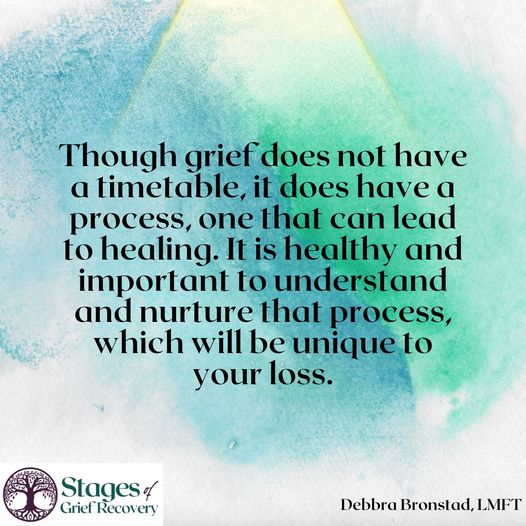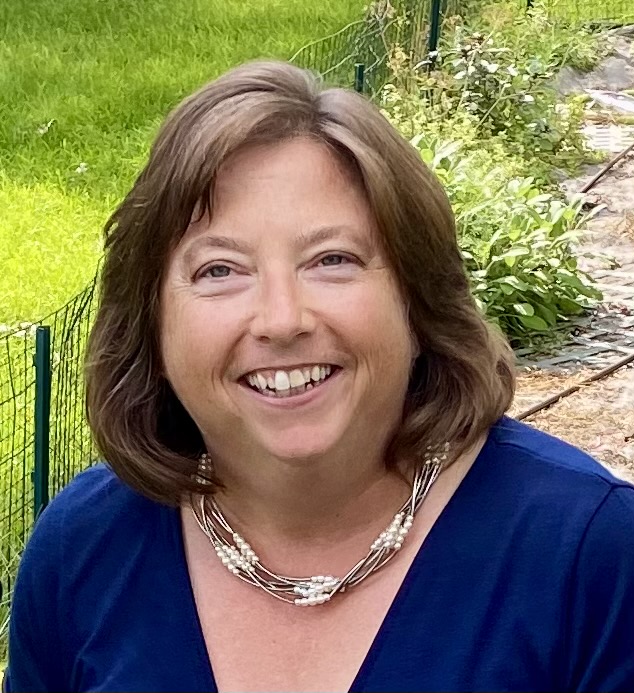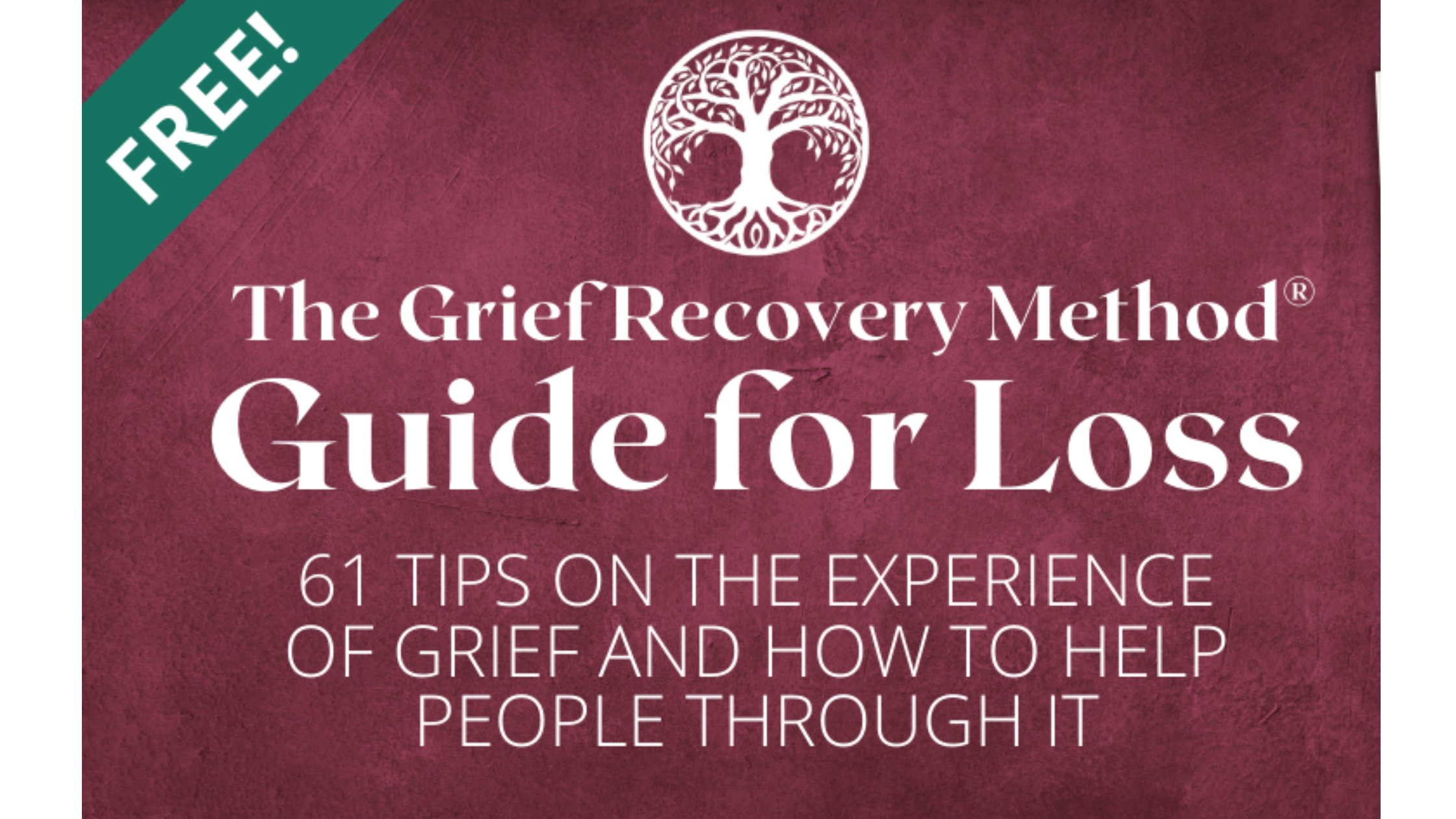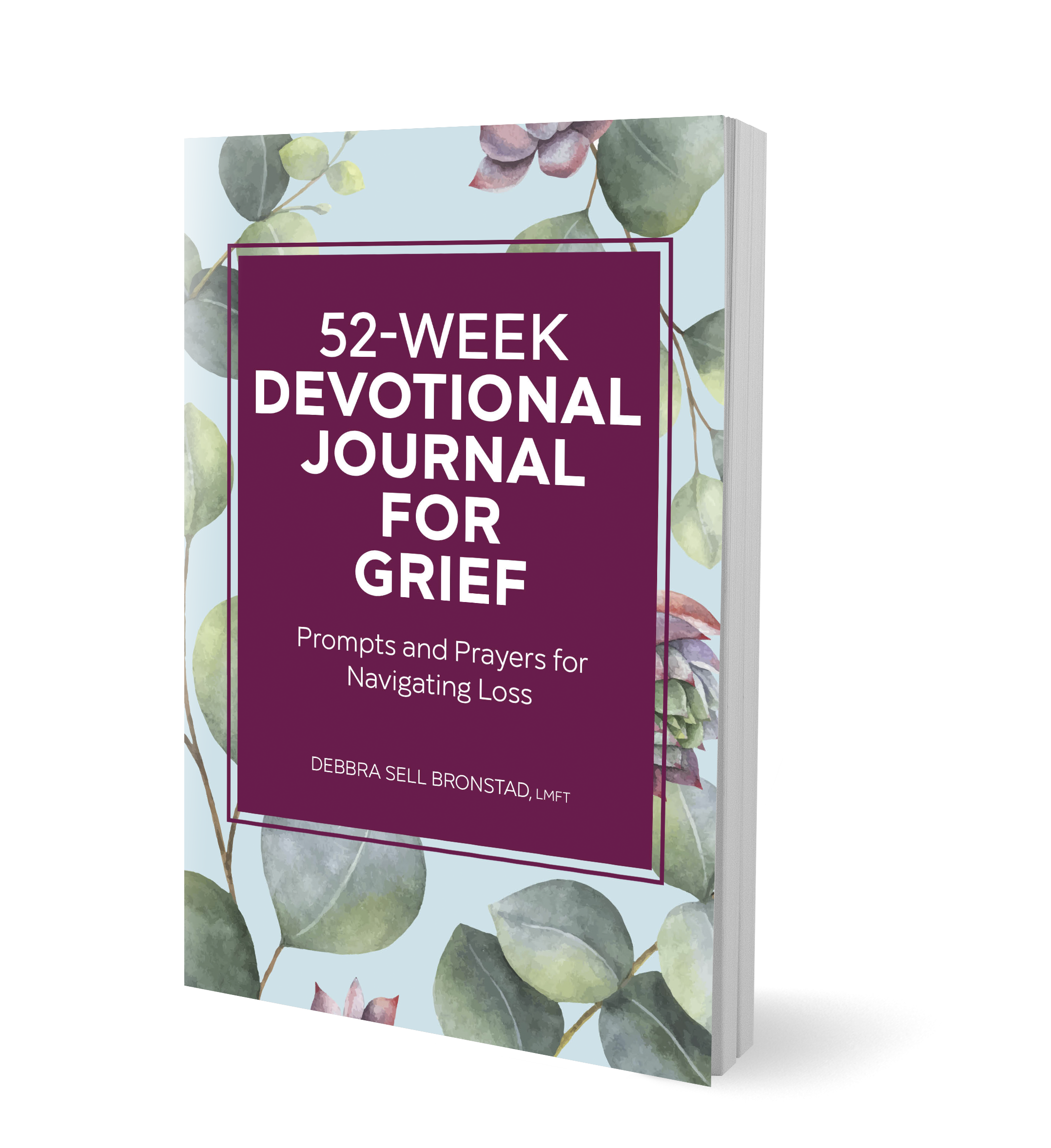Welcome to Stages of Grief Recovery
Your Grief and Loss Specialist
- Do you wonder how long it will take to get through the stages of grief?
- Are you hurting after losing a loved one – a spouse, a parent, a child, a pet?
- Have you faced a major life transition and wonder how to move forward?
- Do you feel like life is passing you by?
- Have the months or years passed and you wonder how to find happiness again?
- Do you cry more than you feel comfortable with?
- Do you wonder, "Is there anything I can do to help this awful feeling of grief?"
My name is Debbra Bronstad Riemann. I am a special kind of grief recovery coach, counselor, speaker and author who helps people process and complete their grief after recent and long ago losses. Losses can include the obvious, such as the death of a loved one, but we grieve many other changes that occur in our lives when they happen before we are ready for them.
There are over 40 different types of losses
Here are some examples:
- Death of a spouse
- Death of a child
- Traumatic loss
- Job loss
- Loss of a home due to move, divorce, fire, natural disaster
- Pet loss
- Loss of a parent
- Loss of a community
- Life transitions
- Retirement
- Empty nest
- Past losses
- Loss of a grandparent
- Relationship estrangement
- Life disappointments
- Marital separation
- Relationship breakup
- Death of a former spouse
- Financial setbacks
- Change in work duties
- Spouse/partner starts or stops a job
- Sleep habit changes
- Changes in school, church, social or work community
- Legal difficulties
- Infertility
- Loss of pregnancy
- Medical issues
- Change in eating patterns
- Holidays
- Loss of trust
- Loss of control over one's body
- Difficulties with in-laws
- Family conflict
- Change in familiar holiday plans/traditions
- Loss of approval
- Loss of sense of safety or security
- Loss of cognitive or physical abilities
- and more
Even positive experiences can lead to grief
Sometimes life events that we look forward can have an element of grief to them. For example, a child getting married may change the relationship you have with them. The transition to parenthood often changes relationships with your spouse and friends, especially those who are not yet parents.
Graduation from high school or college can result in positive moves in your life, but often changes familiar patterns of relationship and connection with friends and family.
A windfall of income can bring changes or overwhelm that you aren't prepared for.
Grief comes in many forms and is sometimes unexpected, especially when we feel down or stressed after experiencing positive changes that we looked forward to.
Anxiety is a common grief symptom
Anxiety is epidemic in our culture. What many don't realize is that anxiety is often a cover for unprocessed emotions related to grief. Underneath the anxiety can be a heart overwhelmed with grief, fear, worry, trauma, regret, guilt, or anger that you don't know what to do with. So it sits there until a life experience or a conversation stirs it up again. Anxiety is a signal that your heart needs help.
Many of us have heard the saying, “time heals all wounds.”
Do you have wounds that have not healed over time? It is a myth that time alone will take care of grief. Many are waiting a very long time to find happiness again. Download our Guide for Loss below to learn more about the grief process and how to heal your heart.
You are not alone.
The fact is time alone is not enough to complete the grieving process.

Though grief does not have a timetable, it does have a process, one that can lead to healing. It is healthy and important to understand and nurture that process which will be unique to your loss.
There are specific steps that are required for your heart to recover from tragedy and loss so you can find happiness again.
Some people go through some of the steps of grief recovery over time, but rarely do people go through all of the steps for significant losses in their lives. When grief is incomplete it restricts energy and hinders us from living the abundant, joyful life we long for. Many people endure stress and anxiety that is actually unprocessed grief from their history that keeps coming up again and again. As your grief recovery coach, I help you uncover what the anxiety is trying to tell you and help you take the steps to bring relief.
The Stages of Grief Don't Heal Broken Hearts
I invite you to read more about how the stages of grief we take for granted, are more of a myth than a reality. The stages model can actually hinder your recovery.
Time alone does not heal wounds of the heart.
These stages of grief models suggest that if you just wait long enough,
you will move through all the stages until you are healed. This leads
to months and years of unnecessary heartache and disappointment.
Download our Guide for Loss for get tips as you experience grief.



